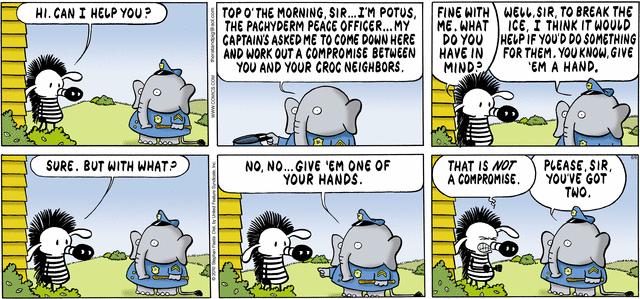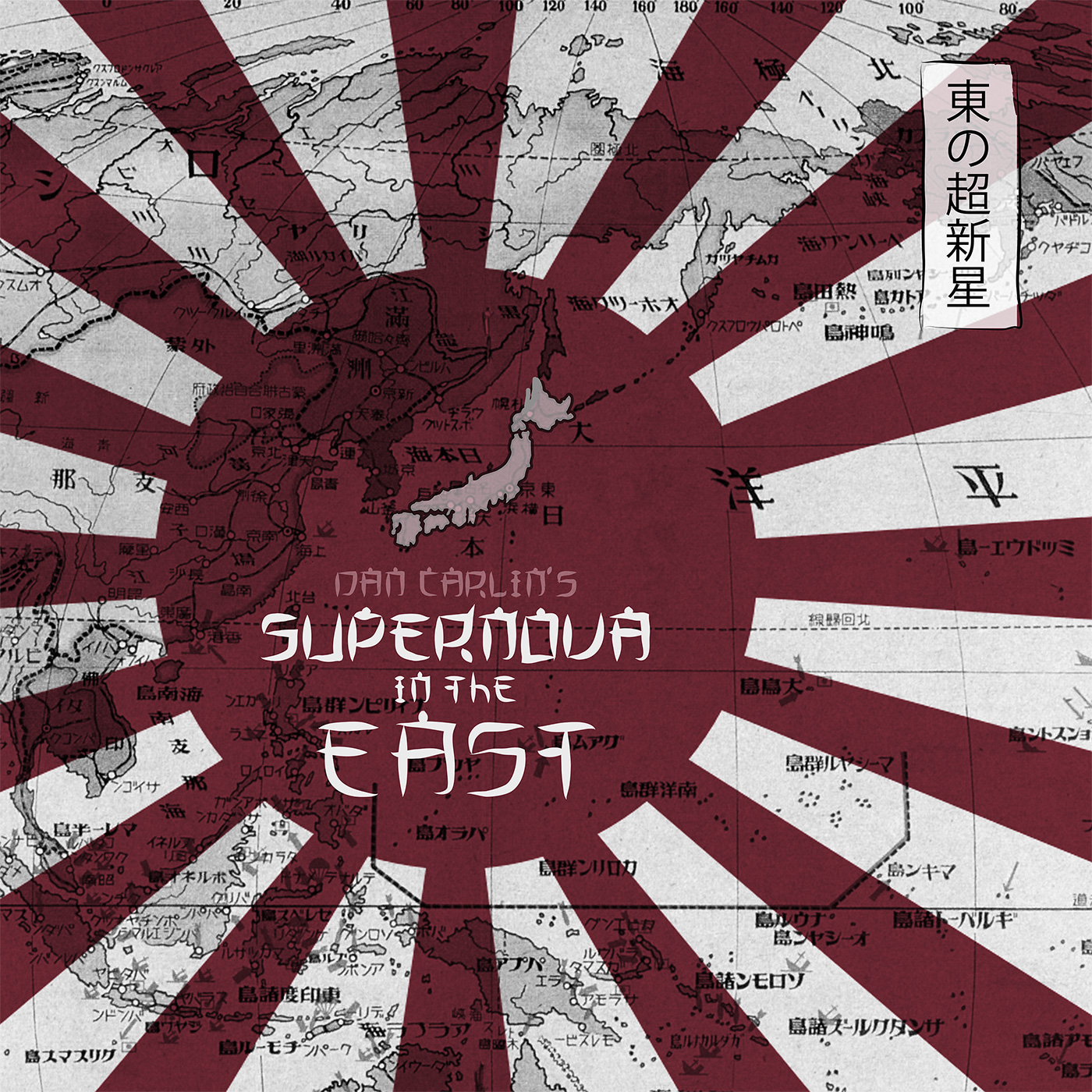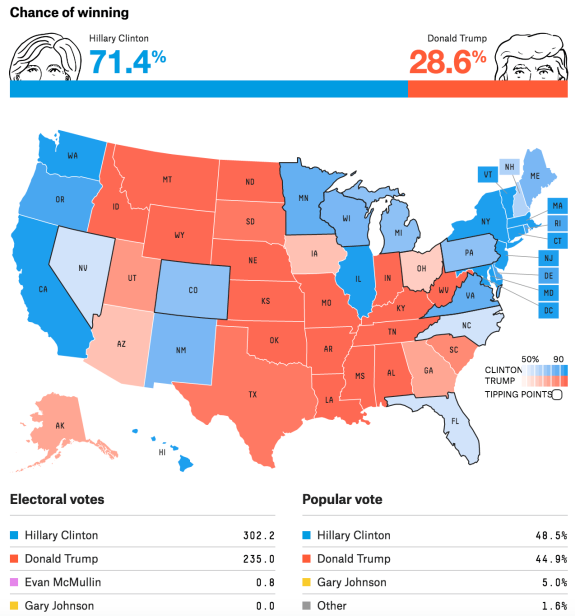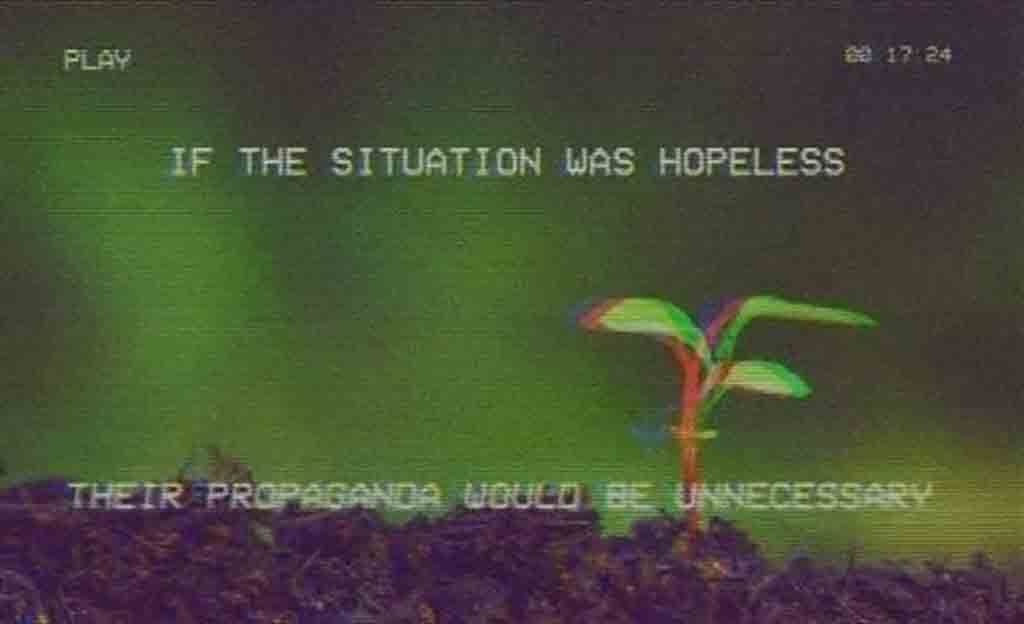
Staying Informed Without Burning Out
What to expect from this article:
- A recap of the journey that led me here
- Analysis of how I’m finding incremental improvements toward a healthy balance in media consumption to stay informed without burning out
- A list of media resources and references that I find useful and trustworthy
Timeline of a Media Burnout

I’ve had unhealthy habits in media consumption for a long time, but the moment that I truly jumped the shark was after the 2016 election. I’m not going to recap everything I felt during that time, but here is my hindsight on how it affected my media consumption.
How was I blindsided by this?
What I thought then: I wasn’t following current events as closely as I could have.
What I now think: I trusted the wrong people for my information, I was naive about how easily the American public is swayed by fake news, and I should have known better.
Who is to blame?
What I thought then: Hillary Clinton, the Democratic Party, mainstream news media, social media, and Bernie supporters that didn’t close the ranks against a common threat.
What I think now: White supremacist strategists, mainstream news media, wide-scale social engineering companies (like Cambridge Analytica), social media companies, American non-voters, Hillary Clinton, the Democratic Party, and Bernie supporters that didn’t close ranks against a common threat.
It took me at least a year to come to terms with a hard-hitting fact:
as unfair as our electoral systems are, when we allow this to happen as a society, it means that we truly are this.
America is racist, selfish, imperial, uncaring of the underprivileged, and becoming more fascist every day. This is who we are, and none of it was new in 2016. The movement just finally got its catchphrase.

Who we are can change, but we can’t change if we’re out of touch with who we are today. We have much farther to go than most Americans realized before.
Am I powerless to prevent this from happening again?
What I thought then: No. I can donate more money. I can do my research earlier and advocate for better candidates and policies to my circles.
What I think now: Yes, for the most part. No matter how much effort I put into educated advocacy, my circle of influence is tiny and the electoral college wipes out groups that small. Even if I donated my entire salary and lived on the street, it wouldn’t make a dent in what the wealthy and powerful could donate. I only have tangible power when I vote.
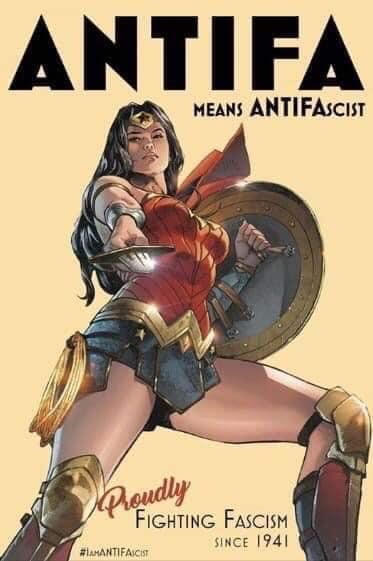
I am still an activist, and I still participate in civil disobedience every chance I get to do so safely, but I no longer mistake this for actual power. I do these things for other reasons that include:
- I feel a sense of duty to do so, and guilt if I don’t.
- I want to show my community that I stand in solidarity with them.
- Seeing others mobilize for causes I believe in recharges my batteries and gives me hope
I Stopped Arguing with Everyone
Some people in our lives are worth fighting for, but most of the arguments we have are not with those people. I am now working on:
- Reserving my energy for discussions with people who value my point of view
- Not repeating myself
- Letting others have the last word
- Walking away once I’ve made my case
It is nearly impossible to change someone else’s mind.
…and botching the discussion only serves to entrench that person in their pre-existing views anyway.
And why is that?

Without all the resources of centralized ownership of global media companies that constantly release propaganda into the world, our efforts are pointless.
Is this contentious discussion worth having?
* recites the serenity prayer *
Qualification #1: The topic is specific enough that we can likely resolve it in the time we have available to dedicate to it
“How do we end racism?” will not be solved during a coffee break.
“Should I support a ballot proposition that seeks to improve housing equity?” can likely be discussed to a reasonable conclusion within an hour.
Sometimes we can take a conversation about a larger topic and whittle it down to a more specific one. But take it from a professional project manager when I say it’s never as easy as it should be.
Qualification #2: The person I’m talking to speaking in good faith

Depending on how well I know the person, this may be difficult to determine. At the start, I can decide on their risk factor with intuition, but no matter who I’m talking to the discussion can always turn on a dime and descend into bad faith. If I ever feel that happening, I trust my instincts and beat a hasty retreat.
One useful phrase I’ve found is:
That is not my stance.
Most bad faith arguments I find myself tricked into include the person bending what I say into another argument they’d rather be having. If I say “that is not my stance” and they continue without asking for clarification on what my stance actually is, I can just walk away. That person isn’t willing to hear me.
Qualification #3: I care what this person thinks
Would I lose any sleep if:
- the person I’m talking to walked away right now and continued to believe what they currently do, or
- I walked away from this conversation without learning more about this person’s view.
In most cases, I’ve been sleeping better after avoiding these discussions.
Results So Far
How many arguments have qualified after I started doing this? Three. They were all reasonably productive and have led to more productive talks since.
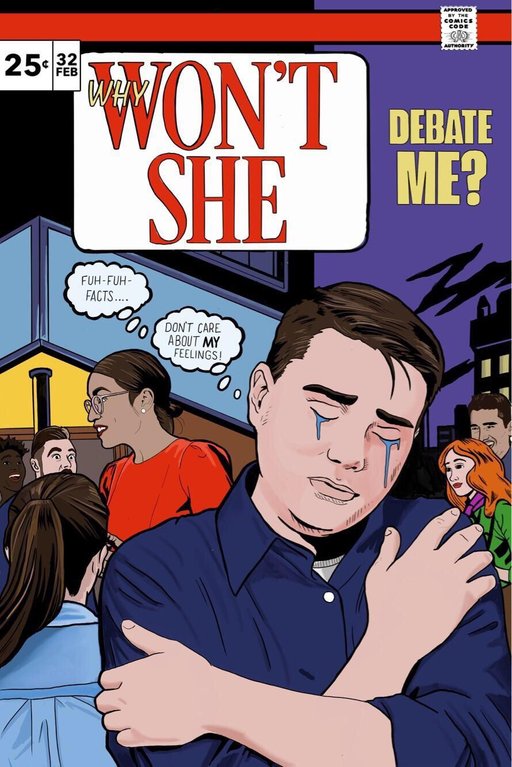
How many friends have I lost by disengaging? If we go by my social media lists, I’ve lost over a hundred. If we go by people I actually had strong relationships with, zero.
How many of these do I regret? Also zero.
I Began Building a Well-Balanced Media Diet
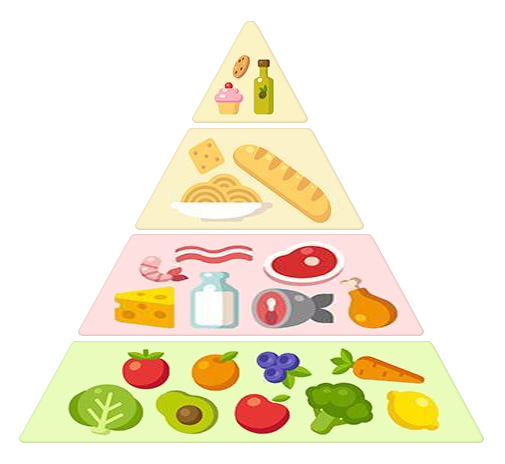
No one can know everything first-hand. Everyone must find sources they can trust to be satisfactorily rigorous, honest, and transparent. It is common for humans to share information in ways intended to manipulate their audience. We must be vigilant in our efforts to resist such manipulation and avoid doing it to others.
What Matters to Me?
We’re all capable of holding multiple opinions about any number of issues, but there is only so much time in our day and we only want a fraction of that time to go toward consuming media we don’t enjoy.
Priorities
Each of us needs to narrow these down ourselves, but my content must satisfy at least one of these requirements:
- Prepares me for the future
- I don’t consume predictive content from anyone who doesn’t have a reasonably strong track record for accuracy. (pretty much every election pollster)
- Informs the way I vote or participate in activism
- I don’t consume content that piles on to public figures or policies that I already know I oppose and/or can do nothing about. (“Can you believe what Trump said today!” rage bait articles)
- Helps me become a better human being
- I avoid content that seeks to play into my confirmation bias and comfort me in my existing beliefs without adding new knowledge. (articles that aim to sell universal healthcare aren’t written for me, and if they are they’re masturbatory clickbait)
- Entertains me (without being poisonous)
- I don’t hate-watch things anymore just to derive pleasure from the train wreck (most reality TV and bad movies)
I may think of others to add here someday, but for the last few months of mindful media consumption, I have yet to feel like I’ve missed anything by excluding content that doesn’t meet one of these.
Specific Interests
It has also helped to figure out specific topics I care about so I can find consistently high-quality sources for information about those topics. Here are some examples of my specific interests:
- Civil Rights & Liberties
- Sexual Health
- Mental Health
- General Tech
- Environment Conservation
- Marijuana
- Gaming
- Web Development & Tech Management
- SF Bay Area Politics
Who Do I Trust?
This question has no easy answer. We can set ourselves up to spend hours every day finding the most rigorously curated content possible, or instead, we can choose to be happy. I’ve chosen to start pursuing the latter, but there are compromises in between too.
So the work now becomes a question of process. We want to set up a process where:
- We are spending a maximum of X minutes per day consuming non-entertainment media
- We are not missing any time-sensitive information we care about
Two Sides?
We are told by modern media that there are “two sides to every story” when in reality there are well over 7 billion sides. When we allow another’s perspective to override our own, we allow ourselves to be manipulated into adopting their worldview above our own.
Mainstream news perpetuates the “two sides” misconception because their existence as enormous monolithic organizations depends on it.
They want us to believe that if we watch both Rachel Maddow and Tucker Carlson on an issue, we’ve seen everything there is to know about it. In reality, we’ve seen two opinions from people with an imperfect understanding of the topics and biased by the advertisers that pay their bills.
These news outlets do practically zero journalism, and they are forced to produce content so quickly after an event occurs that it’s impossible to do the due diligence in fact-checking and follow-through that a real journalist would take. Most breaking news we see on these networks is an overreaction or rumor.
But, as I said earlier, we can’t know everything first hand. So what are we left to do?
Finding My Favorite Journalists, Scientists, and Scholars
When I see an excellent article that I learn useful information from, I:
- Do a quick check of the sources the article cites to make sure they hold water and that I find them trustworthy.
- Look past the giant logos of the publication, the aggregation site, and all the advertisers for the tiny text with the author’s name.
- Look that person up, follow their blog, follow their Twitter account, add them to my RSS feed. Keep an eye on their work.
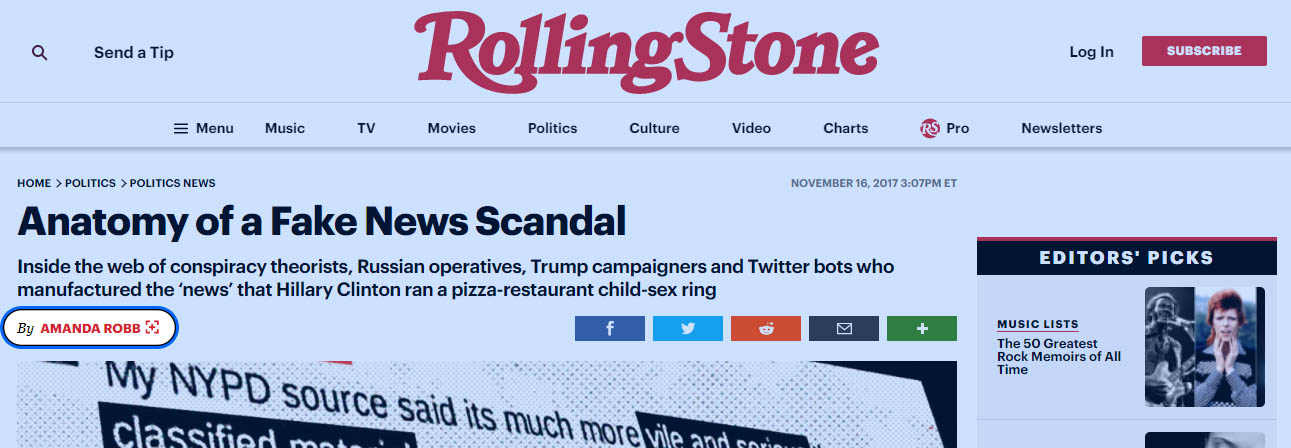
Each time I do, I skip all the middlemen and pundits that spend most of their time trying to spin that information into bite-sized pieces that can push the agenda of their advertisers and allies.
The goal is to get as close to the direct source of the information I care about as possible.
Prune the Bonsai
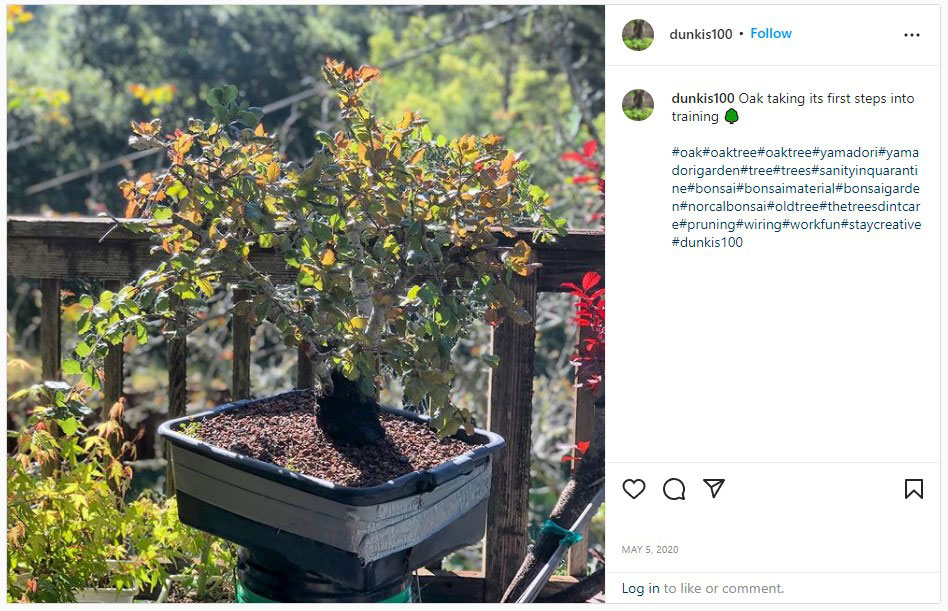
After continuously adding more voices to my feed, it’ll eventually become overgrown. I try to periodically look at all my subscriptions and remove any that haven’t sparked joy in the last few months.
Let’s keep our feed manageable and our screen time low.
Tools
Many of us use our social media feeds to keep track of the things we care about, but I’ve found mine to be severely lacking in recent years.
- They are all filled with ads, many of which are not vetted for accuracy or trustworthiness at all.
- Sponsored content was found to legitimately affect the 2016 and 2018 elections with widespread misinformation, and
- Many of the networks have made inadequate measures to stop these from issues from continuing.
Because of this, I’m working on pulling as much of my time away from these platforms as I can. This means I need to find a new way to aggregate content I follow.
Podcasts
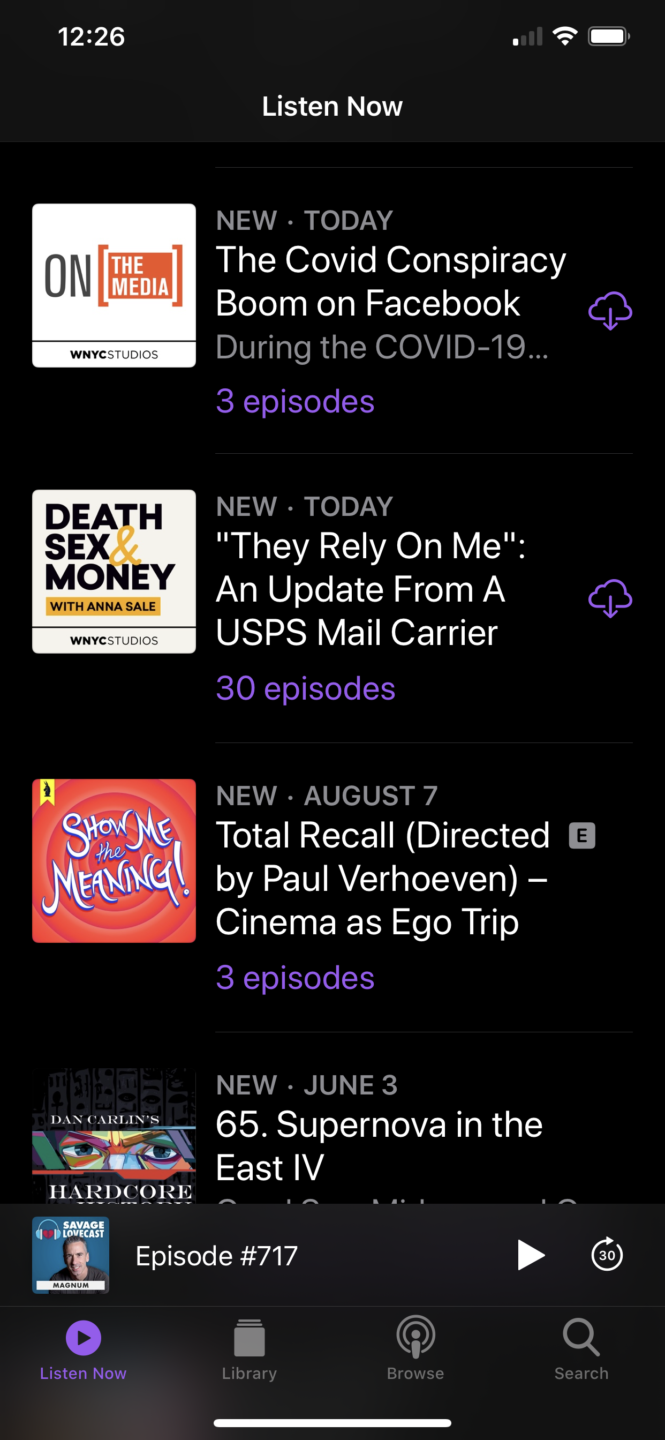
When I was commuting nearly every day, I had about an hour each way to sit on a bus, train, or ferry and listen to podcasts. Now, when we’re stuck at home most of the time, I have to purposefully set aside time to listen to my podcasts. While I’m washing dishes, folding laundry, working, walking the dog, or doing anything else solo I hit play on a podcast and absorb the goodness therein.
I use the iPhone app primarily, but there are lots of ways to listen to podcasts on any device.
Audiobooks
I have a hard time reading traditionally, especially non-fiction. I get distracted repeatedly and I end up with a book on my shelf with a bookmark somewhere in the middle for months. Then when I want to pick it up again, I completely forget what happened beforehand and lose motivation to start over.
With AudioBooks, I may zone out once in a while and miss a couple of pages but it’s easy to step back a bit and listen again. I can consume more pages in audio form than reading too. End result: I read more books, finish more books, and enjoy reading more.
YouTube
YouTube is technically a social media platform with all the negative aspects that entails, but the service it provides is currently still well worth it for me.
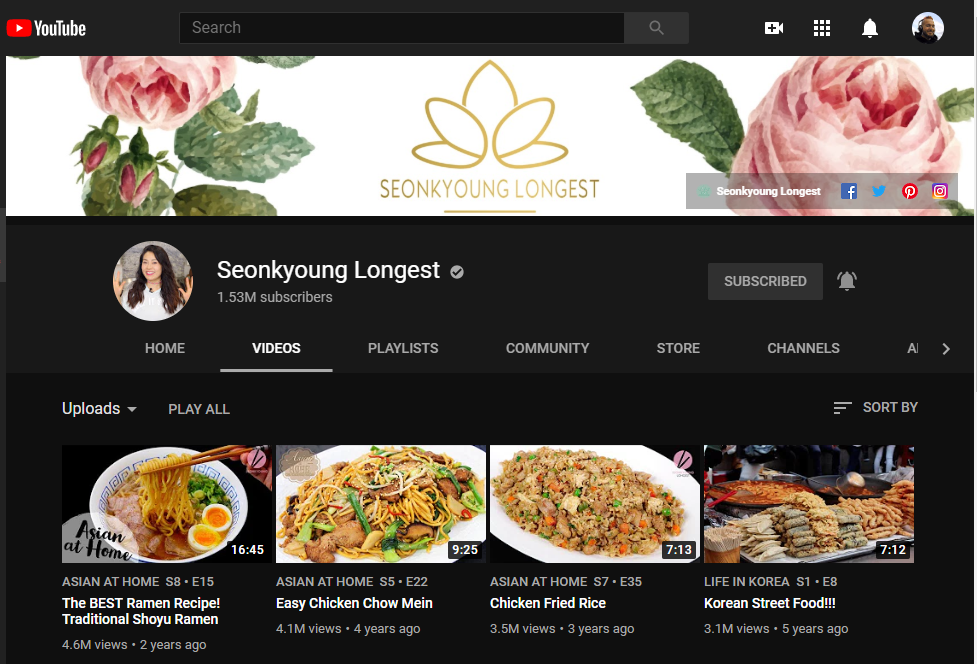
Using it on a desktop device with AdBlock or paying for YouTube’s paid service provides an even better experience. Even without that capability, the ads are less intrusive than any other video platform. They can usually be skipped after a few seconds and they’re much shorter than the commercial breaks we get on television or radio.
The content creators on YouTube are incredibly diverse, creative, and talented. I can find channels for almost any interest I have, learn how to fix/build/cook almost anything around the house, and watch funny people play all the video games I don’t have enough time to play as a sad adult.
RSS Feeds
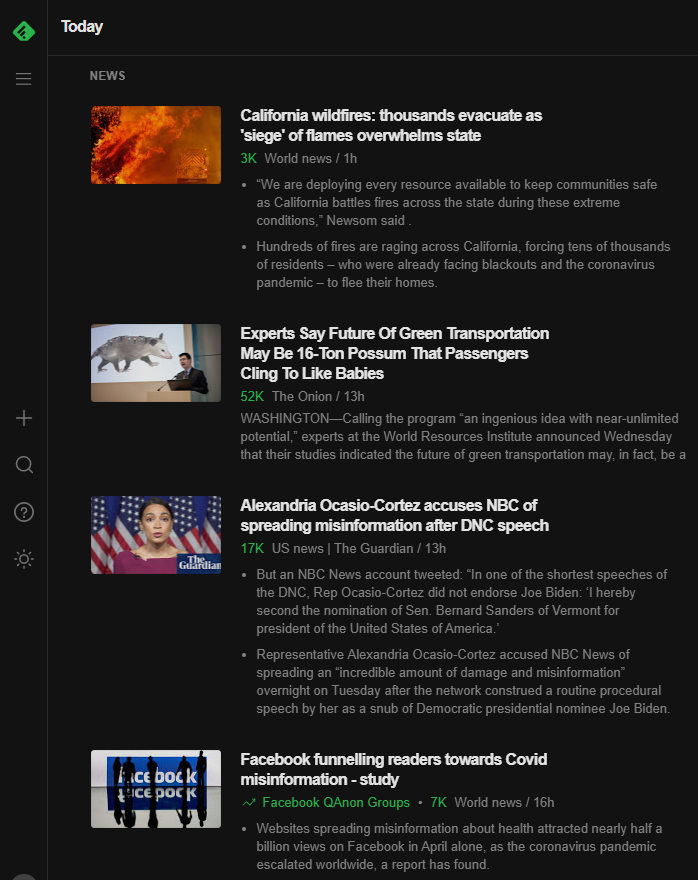
I chose Feedly for my first RSS Reader to try out and I enjoy it so far. It’s not invasive at all and provides lots of helpful tools for organizing all the content I want to read, ignore, or procrastinate on.
Other Solutions I’ve Tried
- My Email Inbox: I still do this a little bit, but I found that getting hit by depressing news stories every time I opened my email was an emotional drop I didn’t need multiple times per day.
- Reddit: Almost all content published online makes it to Reddit in some form, so it seemed like a good place to keep up. “Redditors” have always had weird self-importance that turns me off, but if I stayed out of poorly moderated discussion subreddits I was mostly able to avoid it. A few years back, they let ads creep into their feeds and it was the last straw for me.
- Twitter: I check in on Twitter when I have a specific topic I want to see the latest take on, or if I want to see what’s trending in my bubble there. The infinite scrolling aspect of it is just a black hole for time that I never want to incorporate into any daily routine.
- Facebook: I hate Facebook. I’ve spent far too much time on it and given it way too much of my data. It’s an addictive and exploitative platform that shows no signs of improvement when Mark Zuckerberg continues to defend their shittiest practices and uses content moderation that aids authoritarian regimes. I am ripping myself away from it little by little until I feel confident that I can keep only a basic “shell” account there for chatting with friends.
To each their own!
The Cost
I pay $144 per year for Feedly. I donate $5 per month to three different investigative reporting outlets. My Patreon subscriptions total about $20 per month. I subscribe to the Magnum version of Savage Lovecast for $36 per year.
Paying for these services means that I am not being sold to advertisers, law enforcement, or political organizations.
If you are not paying for it, you’re not the customer; you’re the product being sold.
Andrew “blue_beetle” Lewis (metafilter)
I consider this money well spent for all the time and emotional irritation I’ve already saved by spending about 75% less time on social media.
Best of all, many of these content creators share portions of their work with us even if we don’t pay. So if my budget is tight right now, I can freeload on others’ donations for a while.
Once my finances stabilize and I look around at the people who’ve worked tirelessly to keep me informed and haven’t steered me wrong, I contribute when I can.
My “Stay Informed” Diet Plan
Now that I’ve shared the theory and history behind the way I’m changing up my media consumption, here are the sources I follow today. Let me know if you suggest others, especially if they’re highly nutritious!
🥬 Vegetables
The most difficult thing for me to find in at least a decade has been honest journalism. These sources are not especially entertaining, they never provide easy answers, and often include painful truths.
Here are some of my favorites.
Reuters
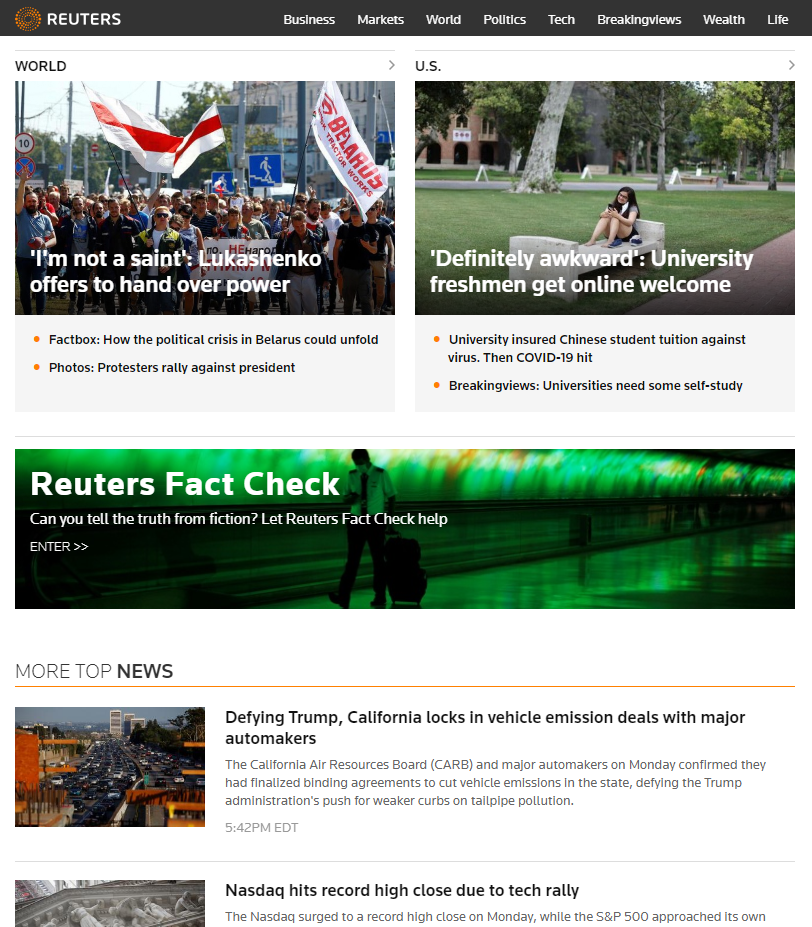
Reuters is the best international news organization I’ve found over the last several years. Their reporting is boring and unemotional for the most part, and its matter-of-fact approach is exactly what we need. I find that I can get exactly the info I need, have the ability to dig deeper into their sources with ease, and am not pummeled with ads during my sessions.
- Reuters U.S. News Homepage
- Reuters World News Homepage
- Reuters Fact Check
- Reuters on Twitter
- Reuters on Facebook
ProPublica
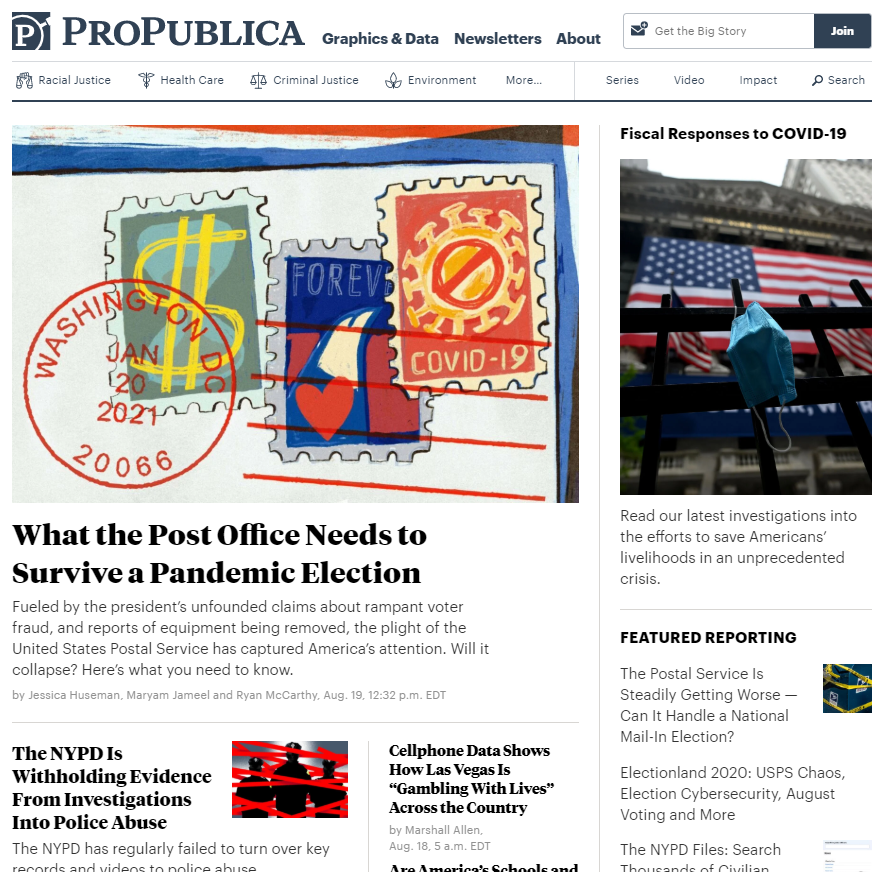
ProPublica is one of the best non-profit journalism organizations around. So many major stories have come from them over the years, and they have a shelf full of awards to show for it.
Reveal News
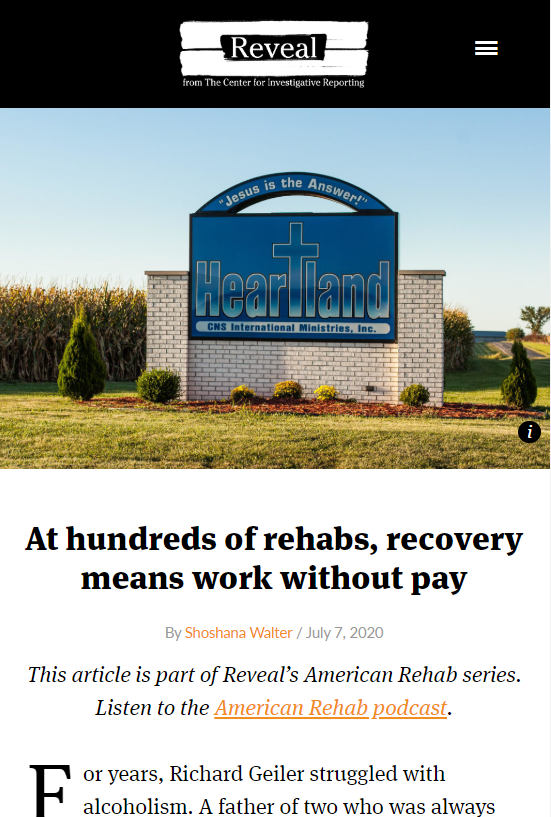
Reveal is produced by The Center for Investigative Reporting. They host one of my favorite podcasts and a news site that doesn’t post often, but posts solid rigorous reports I find easy to trust. As with all investigative reporting, this is not where I go for what happened today. Reveal is for slow, accurate, and important journalism.
On The Media
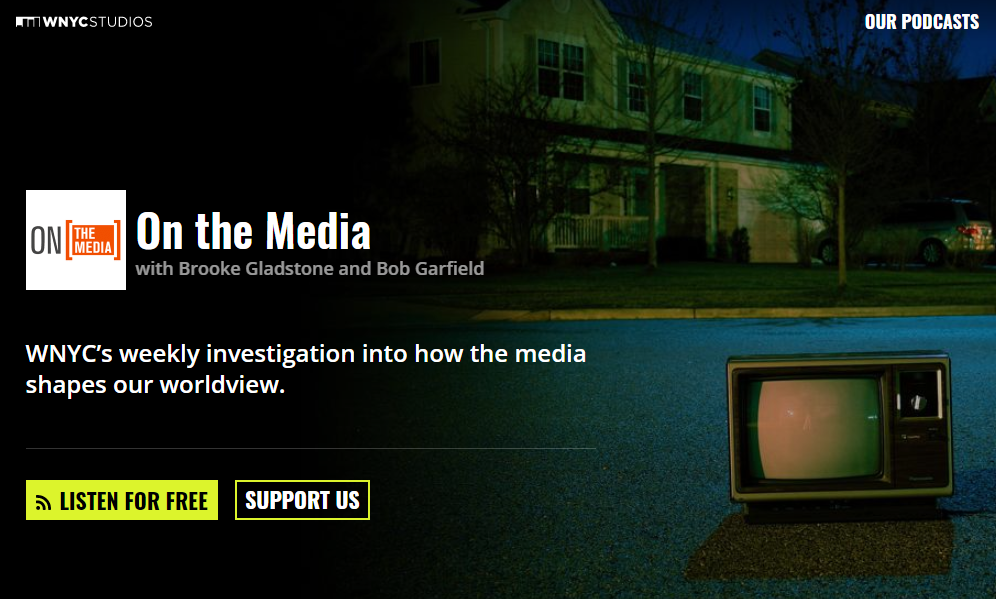
On The Media is a weekly radio show and podcast that looks critically at the way our media spins the facts and attempts to persuade the public. I can’t recommend this show enough, especially for those who include mainstream news in their rotation. It provides context and a critical lens to what we see there.
The Guardian

While not entirely void of spin, The Guardian provides a foreign (UK) perspective that still understands the context of American society. They are often the first news outlet to get a given story right, while rarely the first to report it.
Dry Analysis from Antifascists
These content creators are dedicated to fighting fascist propaganda, and they do so with a minimal amount of fanfare that makes consuming their work a little tedious. The information presented is honest and carries rigorous research. Sadly, in today’s world, this point of view is sometimes considered partisan.
Three Arrows
Shaun
🍖 Proteins
These are highly nutritious and still at least somewhat polished and fun for easier digestion.
Crash Course (YouTube)
This channel is designed for concise, rigorous, and fun educational content. It covers dozens of topics that may not have been covered in our education and provides refreshers, updates, and rigorously researched evidence for all of it. I watch almost every course as it comes out and I recommend it for anyone of any age.
Kyle Hill
I discovered Kyle Hill while watching Magic: The Gathering content on YouTube. He is a brilliant science communicator and educator. He regularly produces streaming video content about the scientific insights into current events and answers viewer questions on the fly.
- Kyle Hill on YouTube
- Kyle Hill on Twitter
- Kyle Hill on Instagram
- Kyle Hill’s Website
- Kyle Hill on Patreon
Esther Perel
Esther Perel is a brilliant psychotherapist that puts our ideas about romantic and social interactions to the test. She scientifically questions our conceptions about the most sensitive topics we deal with every day and provides insight into better ways to think about interpersonal communication.
Marques Brownlee (MKBHD)
There is a ton of bullshit tech news. Almost all of it is efforts to push stock prices up or down or to sell us something we probably don’t need. Marcus Brownlee is a true tech journalist and reviewer. He doesn’t accept conditional sponsorships or try to sell us anything. He’s just an intelligent guy who is interested in all things tech.
Smarter Every Day
Destin is a smart guy with a background in engineering and he creates educational content on YouTube that is mostly in that vein. He really loves his high-speed camera and occasionally does a fun video with that, but every piece of content he delivers is packed with interesting facts.
Hardcore History
Dan Carlin is a historian that digs deep into the human element of history and releases giant episodes packed with fascinating insights and stories once or twice per year.
🍞 Carbohydrates
Useful information comes from these sources, but it’s honestly mostly entertainment. I consume these as an upgrade to junk food when I want to be entertained but still want to absorb some new and interesting information. This is the kind of stuff that won’t necessarily help us make better decisions, but it might make us more interesting at parties.
Philosophy Tube
Philosophy Tube is run by a performer with an intense interest in philosophy and sociology and he uses his skills in theater production and acting to create entertaining and insightful videos about modern philosophical concepts.
Dan Savage
Dan Savage is a sex and relationships advice columnist and podcaster that provides information about some of the most important and under-taught topics in society. His podcast Savage Lovecast is entertaining and informative, giving platforms to scientists, activists, and content creators who seek to educate the public about sex and relationships.
Caitlin Dody / Ask a Mortician
Caitlyn Dody is a prominent voice in the death positivity movement. She candidly — and sometimes whimsically — speaks about real-world issues around death and the death industry. It’s morbidly fascinating at the very least, but also inspired me to make sure that I’m prepared for death in many ways in my own life.
Paolo from Tokyo / Tokyo Zebra
I love pretty much everything about Japan. I know it makes me a weeb, but I was this way before there was a term for it so I really can’t pretend otherwise now. Paolo is a content creator that shows mostly English speaking foreign viewers information about Japan in a fun and entertaining way. I mostly watch it for tourism ideas, but there’s cultural info too.
Wisecrack
Wisecrack is the source of so much high-quality “infotainment” that touches on philosophy, sociology, and ethics while analyzing these topics in our popular entertainment media.
ContraPoints
Incredibly sarcastic, often satirical, and always entertaining, ContraPoints is a channel I find incredibly insightful. I try to consume content from a diverse array of people, and the vulnerability and candor bravely displayed in these videos has provided me with a window into a world I have no way of ever truly understanding.
Cooking Shows
Perhaps I only learn something in one of every four or five videos I watch, but my cooking shows are still somewhat nutrient-rich.
🍪 Junk Food
Perhaps it’s obvious that the recommended serving size for junk food is zero, but it seems like everyone needs it once in a while. The content I consume as junk food includes:
- Video Game Let’s Play Videos
- Netflix Shows
- Magic: The Gathering Content
- Stand-Up Comedy
- Action Movies
- Comics
- ASMR Videos
- The same movie/music/show I’ve already seen a dozen times
☠️ Poison
I’ve found that some media I was consuming was actively harming me.
Advertising
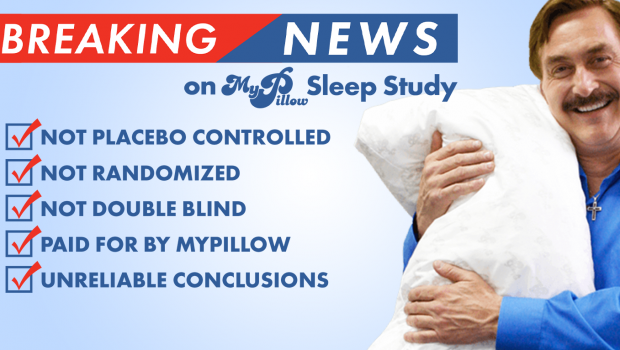
Marketing is the practice of creating a need where there was none before. As a casual student of Buddhism, I believe that desire is the root of all suffering, so I do everything I can to avoid advertising. It has vastly improved my mood, and likely saved me thousands of dollars over the years.
I’ve heard it argued that advertising and marketing can sometimes be a good thing, using examples like ads for signing up for voter registration or getting flu shots. But most of the ads I see are entirely for fueling mindless consumerism or a political agenda that isn’t in my own best interest.
Punditry & Pseudoscience
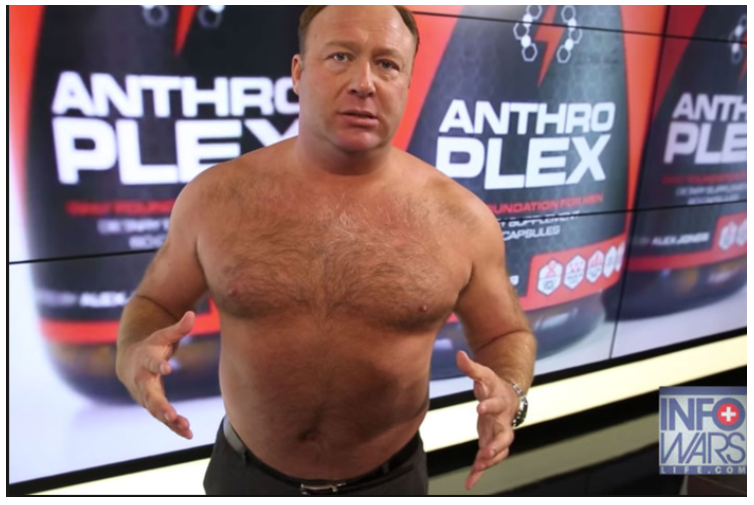
Punditry provides people with easy answers and acceptance without expectations. Truth is the farthest thing from this content. They are disguised as news, analysis, or perhaps simple junk food media, but will do things like:
- sell scam-ridden products
- platform con-men selling toxic ideologies
- feed misinformation that changes how their viewers vote
- provide directives to impede people fighting for civil rights or other progressive goals
Anyone who has followed me on social media knows my intolerance of woo bullshit. But I was consuming some of it myself. Several years ago I stopped listening to The Joe Rogan Experience, a podcast about a comedian who fancies himself open-minded and enlightened but is really just happy to get high and babble on a microphone for millions of listeners every week and call that a career. Laundry lists of Joe Rogan’s bullshit are all over the internet (right alongside his fans harassing the people sharing them).
The show was attractive to me as a young adult man that was interested in MMA, libertarianism, and illicit drugs. He provided comfort by validating every idiot that came on his show and uncritically parroted Rogan’s own idiotic ideas back to him. He falsely claims to be a skeptic while only really being a petulant contrarian. Now when I hear that an adult is still listening to Rogan, it immediately makes me question that person’s judgment.
TV News
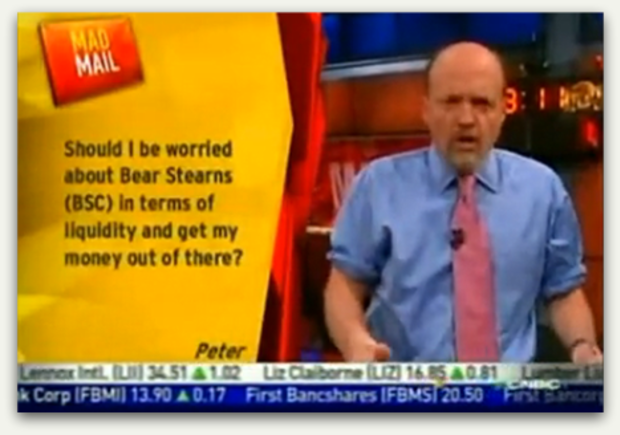
I’m not sure if there was ever a time when the news we saw on television portrayed real journalism, but at the very least the veil has been lifted in the 21st century.
Television news is driven by advertising, which means that — much like social media — they do not serve us. One may not be getting it for free if they pay for cable television, but they’re still pummeled with ads. They are still the product they are selling to their advertisers.
When COVID-19 arrived in the U.S., Fox News told their viewers that it was a hoax to aid in their political agenda and serve the advertisers that prefer receiving massive tax cuts while regular citizens lose their homes and jobs.
When CNN and MSNBC hosted presidential debates for the 2020 primary, they spread misinformation and asked harassing questions regarding Medicare For All. Then, they cut to commercial breaks where insurance and drug companies peddled their services.
When Black Lives Matter protests began and turned into an uprising, CNN and MSNBC ignored the immense stream of video evidence pouring in across the country of police violence against unarmed peaceful protesters. Instead, they interviewed police chiefs about the matter and took their word that their departments were behaving ethically.
Arguably worse than having perverse incentives, they’re just outright incompetent. They continue to invite people who have repeatedly been wrong about their most confident predictions to speak on their platforms.
They don’t serve their viewers’ interests, they’re willing to sacrifice public health for profit, they’re incompetent, and they advertise interests that feel the same way.
Wrapping Up
Thanks for coming along with me on this journey. As with the advice of most nutritionists, I’d suggest we all make the effort to consume more vegetables and protein, fewer sugars and carbs, and absolutely zero poison. How we identify these things is entirely up to us as individuals.

